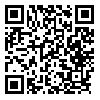شمارۀ جدید فصلنامه (پاییز1404) منتشر شد
BibTeX | RIS | EndNote | Medlars | ProCite | Reference Manager | RefWorks
Send citation to:
URL: http://jspi.khu.ac.ir/article-1-2504-en.html
Medical waste is a serious threat because of its hazardous effects on the human health and environment. This study tries to evaluate the medical waste management in Iran. Also the research seeks to find relationship between medical waste management status with economic and health development. The research's theory framework is based on Ulrich Beck's theory called risky society. Beck argues that we live in the society with risks. These risks mainly are ecological and environmental. Risks are not limited in certain place or time or social class. Risks and threats can influence every country and every social class.
The data were collected from the findings of previous studies about medical waste management which were conducted in all provinces in Iran from 2005 to 2012. Then the data were analyzed via SPSS software. The findings detects medical waste generation is very higher than WHO’s standards in 72% of Iranian provinces. Also the research shows that there is no significant relationship between medical waste management status and the provinces economic rank.
Ddespite of our common expectancy, the results showed there is no significant relationship between economic development and medical waste management status. Medical waste is a threat and Iranian society without economic rank is a risky society . Medical waste is a serious problem for people and requires government and decision makers’ intervention for resolving the problem.
Received: 2016/02/24 | Accepted: 2016/02/24 | Published: 2016/02/24
| Rights and permissions | |
 |
This work is licensed under a Creative Commons Attribution-NonCommercial 4.0 International License. |







